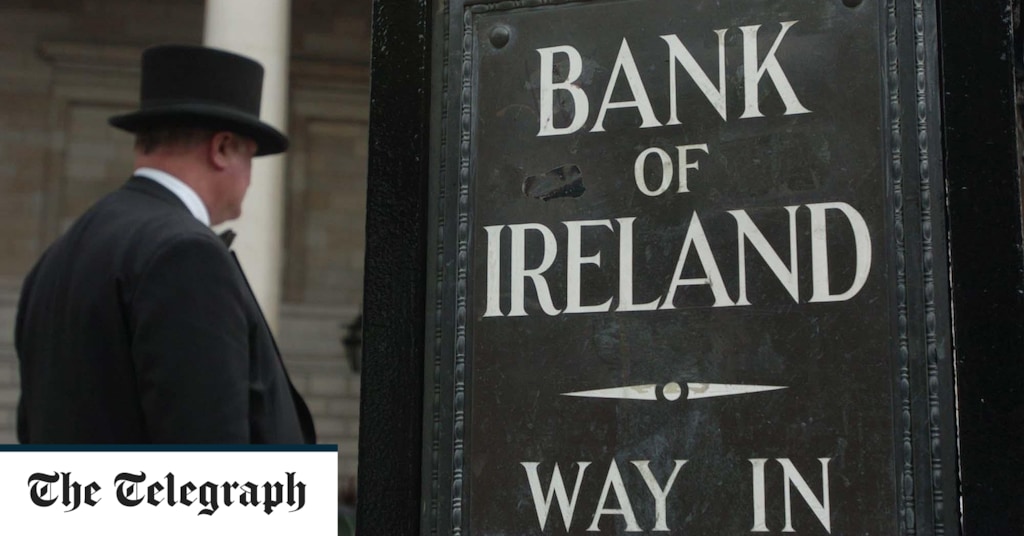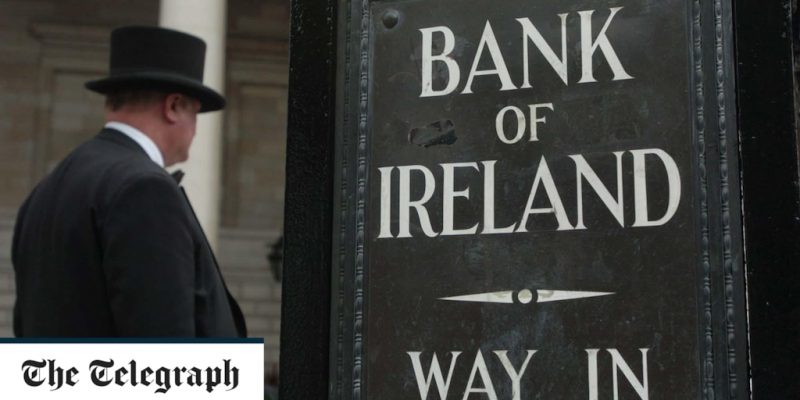Questor Income Portfolio: banks, uniquely, are prone to periodic crisis, while two of our bonds will never be redeemed. What does that mean for the portfolio?
It’s time to take a closer look at our Income Portfolio’s bond holdings – in particular those issued by banks.
The portfolio includes two bank stocks, Lloyds Banking Group and OneSavings Bank, but also three bonds issued by banks or building societies: Bank of Ireland Perpetual bonds, Newcastle Building Society “Pibs” (permanent interest-bearing shares) and Paragon Bank retail bonds.
We’re focusing on these bonds today because two of them, unlike our other fixed-interest holdings, are “perpetual”. Banks are also different from other businesses because the entire sector is prone to periodic crises.
We have not written as much about our bonds as we have about our stocks because the former are so much more straightforward. Whereas the prospects for the shares of a particular company depend on numerous variables, such as economic growth, quality of management and the actions of competitors, the analysis of a bond comes down to two things: will the company stay in business and what will happen to interest rates and inflation?
- Sign up to the Telegraph’s Questor WhatsApp group for daily alerts and exclusive audio updates
As far as the latter point is concerned, the first thing to say is that both can be effectively ignored if the bonds are due for repayment shortly. We can illustrate this by looking at our own holdings.
Our Newcastle Building Society “Pibs” and Bank of Ireland Perpetual bonds have no maturity date and are intended to remain in issue indefinitely. The Paragon Bank bonds, by contrast, are due to be redeemed on Dec 5 next year at their face value of £100.
In view of this known value for the bonds in little more than 16 months’ time, it is most unlikely that their price will deviate much from that figure until they mature (in fact, Questor is surprised that their current price of about £104 is so far from “par” value, as the £4 capital loss suffered at redemption will eat into the interest earned before then).
But it is obvious that even a sharp rise or fall in inflation or interest rates could not do much to move the bonds’ price over their short remaining life. The opposite is the case when it comes to the two perpetual bonds. Here the par value is irrelevant because investors will never receive it in exchange for their holdings.
Instead, assuming for the moment that there are no fears about the issuers’ ability to pay the interest indefinitely, the price of the bonds is driven entirely by the perceived value of the interest paid.This judgment of value can be made only by reference to what is available elsewhere in the market, hence the importance of interest rates.
In the current environment of a Bank Rate of 0.75pc, the 6.4pc yield on both our Newcastle Pibs and Bank of Ireland perpetuals looks highly attractive. But some time in the future interest rates are likely to rise. What if savings accounts paid 6pc? Savers would naturally opt for 6pc with a guarantee of no capital loss, courtesy of the statutory safety net, rather than slightly more from the bonds, whose interest payments are not underwritten.
- Read Questor’s rules of investment before you follow our tips
Hence interest rates of 5pc would cause the price of these bonds to collapse. Fortunately for our portfolio, such an eventuality seems a long way away.
Higher inflation, meanwhile, would eat into the real value of the bonds’ promised income. Picture the interest they will pay in 20 years’ time, for example. It is fixed in terms of pounds and pence, but inflation of, say, 4pc a year would, after the elapse of two decades, erode its real value considerably. This too would be reflected in the bonds’ price.
Again, however, there is little sign of a resurgence of inflation.
That leaves the risk we alluded to at the start of the article: that of another banking crisis. We can never discount the possibility – no one saw the last one coming, after all – but lenders have been made much more resilient in recent years.
Newcastle Building Society is a conservatively managed business, while Bank of Ireland, which had to be rescued by the Irish state during the crisis, is now on a much more stable footing. All our bonds remain holds.
For the best of the Telegraph’s investment analysis, advice and expert opinion, sign up to our weekly newsletter.
Read the latest Questor column on telegraph.co.uk every Sunday, Tuesday, Wednesday, Thursday and Friday from 6am.
























Comments